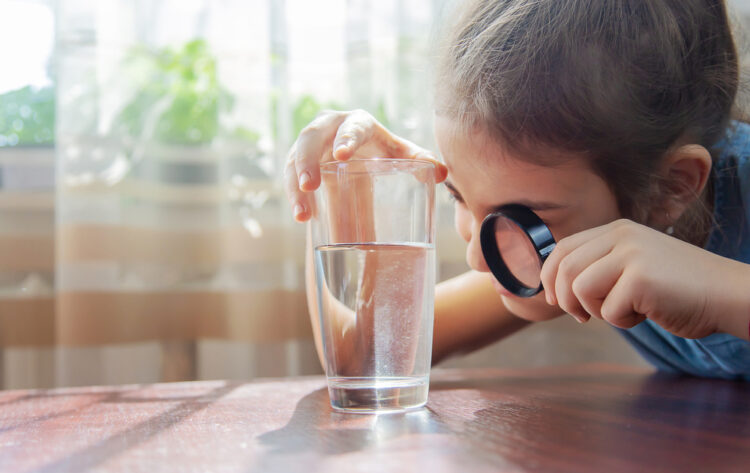How clean is your water? A number of water contaminants have been identified and linked to cancer, especially bladder and rectal cancer. Some of these are naturally-occurring substances like arsenic, radioactive materials and disinfection byproducts. Other contaminants in our water supplies are found in pesticides, fertilizers and lead from old pipes. We’re not only drinking these substances, but we’re cooking with them and bathing with them.
Alarming research reveals that almost 50% of the U.S. tap water supply contains ‘forever chemicals,’ scientifically known as PFAS. These resistant compounds, present in 45% of U.S. drinking-water samples, are used to repel stains, grease and water in products ranging from fast-food packaging to non-stick cookware.
You can lower your cancer risk by taking steps to improve your water quality. Many cities offer free testing to gauge your baseline chemical levels. Additionally, various filters are available to reduce risks from contaminants:
- Pitcher filters like Clearly Filtered, offer affordable options with fluoride filtration
- Countertop and shower filters like Berkey, are suitable for larger volumes and showers
- Whole house water filters like Aquasana offer comprehensive filtration solutions
Equally important as the filter is routine replacement. How do you know when it is time to replace a filter?
- You notice diminished water pressure and slower filtration from your water supply source (shower, faucet, etc)
- There is visible buildup like rust, mold or particles
- You observe subtle changes in smell or taste
Let’s switch gears now to how much water you should drink. Your recommended daily intake really depends on how active you are and how well you’re absorbing water. You can drink 3 liters per day, but not actually be hydrated sufficiently. How does this happen? As food and water quality have declined in the US, that means we’re not getting as many minerals for proper body functioning. Electrolytes are responsible for directing water to the areas in your body that need it most, which helps maintain cellular fluid balance for adequate hydration.
Connecting the dots: Here’s a quick guide to getting your body properly hydrated
- How much water are you drinking currently? The most important time to drink water is in the morning since you’re coming off an overnight fast during sleep, so you’ll have to replenish yourself upon waking before that cup of coffee.
- How soon after you drink water are you going to the bathroom? If your cells are hydrated, you should be able to hold your liquid for up to 2 hours. If you’re going more frequently than that, it could mean your body is not absorbing the liquid properly. Electrolytes, like LMNT (without added sugar) can help correct this if you add this to the water that you’re drinking. They do taste slightly salty, but this brand uses natural fruit flavor and stevia leaf extract to improve the taste versus most other brands that add who-knows-what to make it taste “good.”
- If you exercise or are very active, you’ll need to drink more water. The more you sweat, the more you’ll need to replenish.
Follow us on Facebook, Instagram, and LinkedIn, and visit our website or join our email list for cancer health and wellness support.

